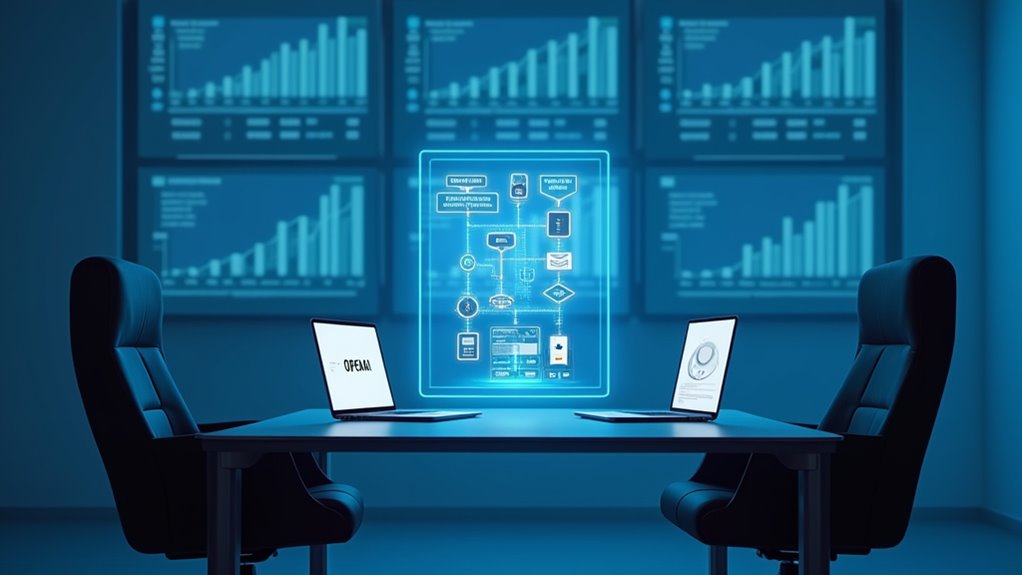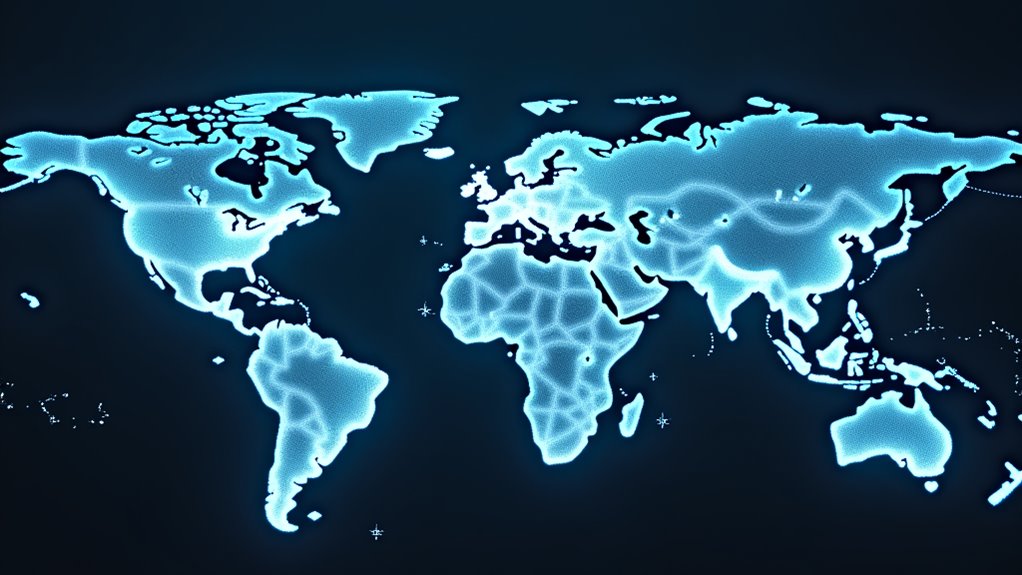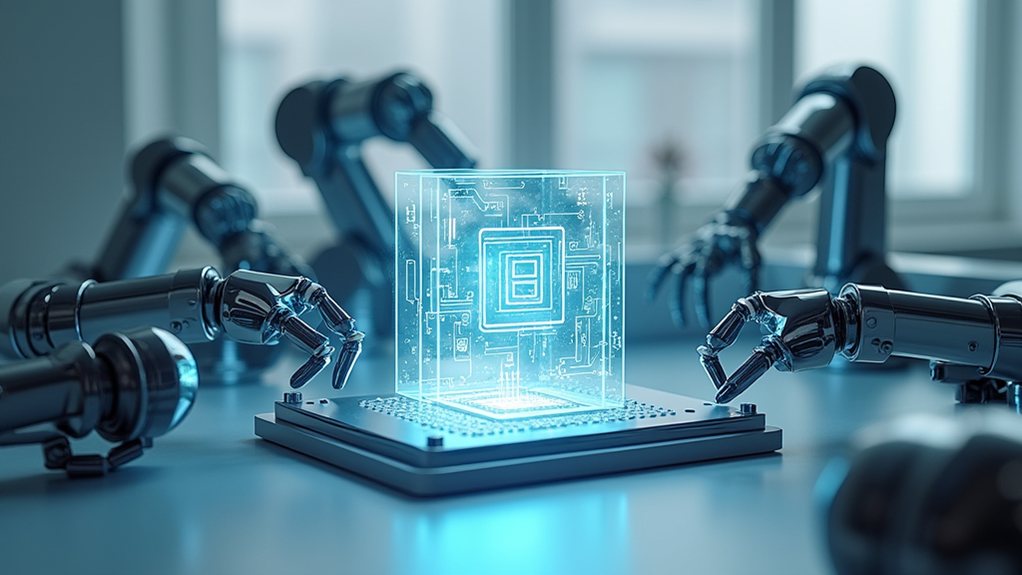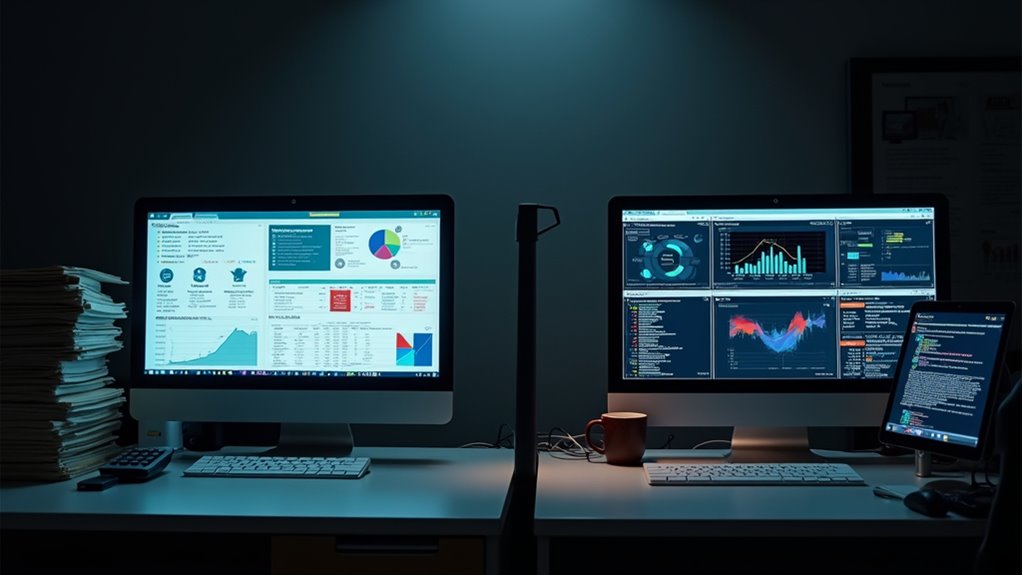AI is poised to dramatically reshape the job market by 2028, with 300 million positions potentially on the chopping block. Office workers, customer service reps, and production staff face the highest risk—sorry, TPS report enthusiasts. While economic growth may offset some losses, 45 million Americans could still find themselves updating résumés. The silver lining? New opportunities in healthcare and STEM fields await those willing to pivot their skill sets before the robot overlords arrive.
While most of us were busy watching cat videos or arguing about pizza toppings, artificial intelligence has been quietly preparing to render millions of careers obsolete. Goldman Sachs estimates that AI could replace a staggering 300 million full-time equivalent jobs globally, with 46% of office and administrative support tasks particularly vulnerable.
Remember when we worried about robots stealing factory jobs? Well, the AI revolution has expanded its appetite. By 2027, approximately 23% of current jobs will change considerably, with AI already capable of automating work done by about 70% of today’s workforce. Despite these concerns, AI is expected to add 19.9 trillion dollars to the global economy by 2030, potentially offsetting some job losses with new economic growth. It’s like we’re all playing musical chairs, and AI keeps removing seats while changing the tune.
Remember factory job automation fears? That was just the appetizer. AI’s coming for your career, changing the rules while the game is still in play.
The numbers paint a sobering picture. In the next five years, experts project 83 million jobs will vanish while only 69 million new positions emerge. Europe and the US alone could see unemployment spike by up to 12 million. By 2030, as many as 45 million Americans might find themselves jobless—making your annoying boss suddenly seem like the least of your problems.
Not all sectors face equal risk. Office staff, production workers, and customer service representatives are prime targets—basically, if your job involves predictable patterns, AI is eyeing your desk. That’s why 92% of employers plan to implement AI solutions by 2028. They’re not doing it for the cool factor.
There is a silver lining, though. AI could contribute a whopping $15.7 trillion to the global economy by 2030 and potentially boost labor productivity by 40% within the next decade. New opportunities will emerge, particularly in healthcare and STEM fields, where human creativity and emotional intelligence remain valuable currencies. A recent global survey of 22,816 adults across 31 countries confirms widespread anticipation of significant job changes due to AI advancements by 2028.
The change won’t be painless. Low-skilled workers will need considerable reskilling, and educational systems must evolve rapidly to prepare people for an AI-integrated workplace. Despite widespread fear, AI is projected to create a net gain of 12 million jobs by 2025 as new positions emerge to replace those being automated. The clock is ticking—the 2027-2028 period marks a critical tipping point in this transformation.
Better start learning how to befriend the algorithms—they’re coming for your job description, ready or not.








